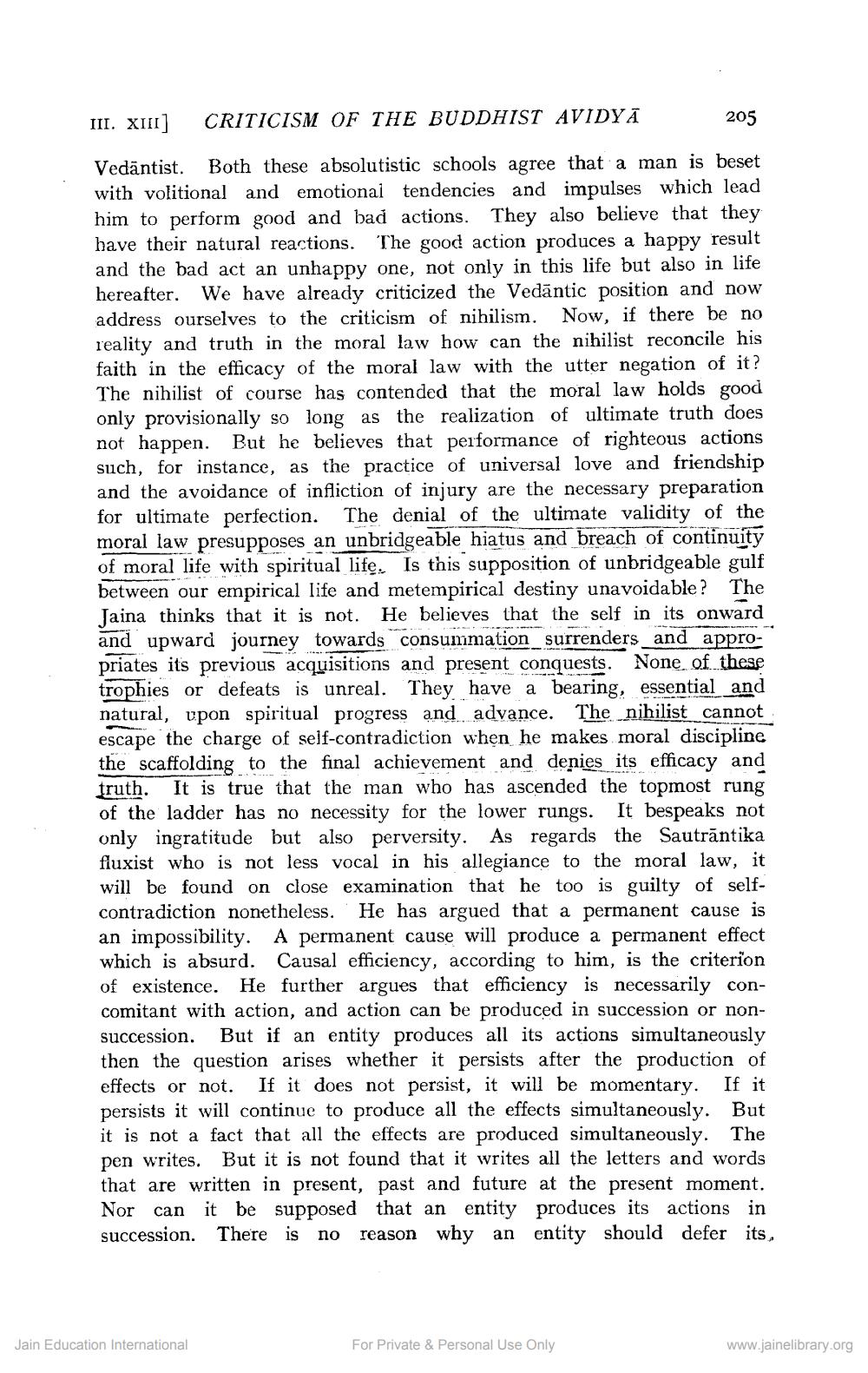________________
III. XIII]
CRITICISM OF THE BUDDHIST AVIDYA
205
Vedäntist. Both these absolutistic schools agree that a man is beset with volitional and emotional tendencies and impulses which lead him to perform good and bad actions. They also believe that they have their natural reactions. The good action produces a happy result and the bad act an unhappy one, not only in this life but also in life hereafter. We have already criticized the Vedantic position and now address ourselves to the criticism of nihilism. Now, if there be no reality and truth in the moral law how can the nihilist reconcile his faith in the efficacy of the moral law with the utter negation of it? The nihilist of course has contended that the moral law holds good only provisionally so long as the realization of ultimate truth does not happen. But he believes that performance of righteous actions such, for instance, as the practice of universal love and friendship and the avoidance of infliction of injury are the necessary preparation for ultimate perfection. The denial of the ultimate validity of the moral law presupposes an unbridgeable hiatus and breach of continuity of moral life with spiritual life. Is this supposition of unbridgeable gulf between our empirical life and metempirical destiny unavoidable? The Jaina thinks that it is not. He believes that the self in its onward and upward journey towards consummation surrenders and appropriates its previous acquisitions and present conquests. None of these trophies or defeats is unreal. They have a bearing, essential and natural, upon spiritual progress and advance. The nihilist cannot escape the charge of self-contradiction when he makes moral discipline the scaffolding to the final achievement and denies its efficacy and truth. It is true that the man who has ascended the topmost rung of the ladder has no necessity for the lower rungs. It bespeaks not only ingratitude but also perversity. As regards the Sautrāntika fluxist who is not less vocal in his allegiance to the moral law, it will be found on close examination that he too is guilty of selfcontradiction nonetheless. He has argued that a permanent cause is an impossibility. A permanent cause will produce a permanent effect which is absurd. Causal efficiency, according to him, is the criterion of existence. He further argues that efficiency is necessarily concomitant with action, and action can be produced in succession or nonsuccession. But if an entity produces all its actions simultaneously then the question arises whether it persists after the production of effects or not. If it does not persist, it will be momentary. If it persists it will continue to produce all the effects simultaneously. But it is not a fact that all the effects are produced simultaneously. The pen writes. But it is not found that it writes all the letters and words that are written in present, past and future at the present moment. Nor can it be supposed that an entity produces its actions in succession. There is no reason why an entity should defer its,
Jain Education International
For Private & Personal Use Only
www.jainelibrary.org




